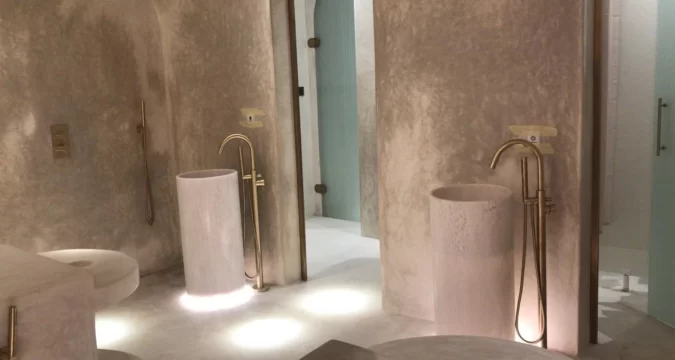
One of the most debated topics in the home design and construction industry is the use of artificial marble versus natural stone. Both options have their own set of advantages and disadvantages, making it difficult for homeowners and interior designers to make a decision.
Artificial marble:
Pros:
- Consistent appearance: Artificial marble, being man-made, offers uniformity in color, pattern, and veining, ensuring a consistent appearance across large surfaces. This predictability allows for easier matching of slabs and precise design planning.
- Durability: Engineered stone is typically more resistant to scratches, stains, and etching compared to natural stone. It is less porous and therefore less susceptible to water damage or staining from spills, making it ideal for high-traffic areas like kitchens and bathrooms.
- Low maintenance: Artificial marble requires minimal maintenance, as it does not require sealing and is easy to clean with mild soap and water. It is less prone to etching from acidic substances, such as lemon juice or vinegar, compared to natural stone.
Cons:
- Appearance: While artificial marble closely resembles natural stone, some people may prefer the unique beauty and variation found in natural stone. Engineered stone may lack the depth and character of natural veining and patterns.
- Heat resistance: Engineered stone may not be as heat-resistant as natural stone. Prolonged exposure to high temperatures, such as hot pots or pans, can cause thermal shock and damage the surface, leading to discoloration or warping.
Natural stone:
Pros:
- Unique beauty: Natural stone offers unparalleled beauty and character, with unique veining, patterns, and colors that cannot be replicated in artificial materials. Each slab is one-of-a-kind, adding a sense of luxury and sophistication to any space.
- Heat resistance: Most natural stones, such as granite and quartzite, are highly heat-resistant, making them suitable for use in kitchens and around fireplaces. They can withstand high temperatures without sustaining damage.
Cons:
- Variability: Natural stone is inherently variable in color, veining, and texture, which can make it challenging to match slabs and achieve a cohesive look across large surfaces.
- Porosity: Some natural stones, such as marble and limestone, are porous and prone to staining if not properly sealed and maintained. They require regular sealing to protect against moisture and spills.